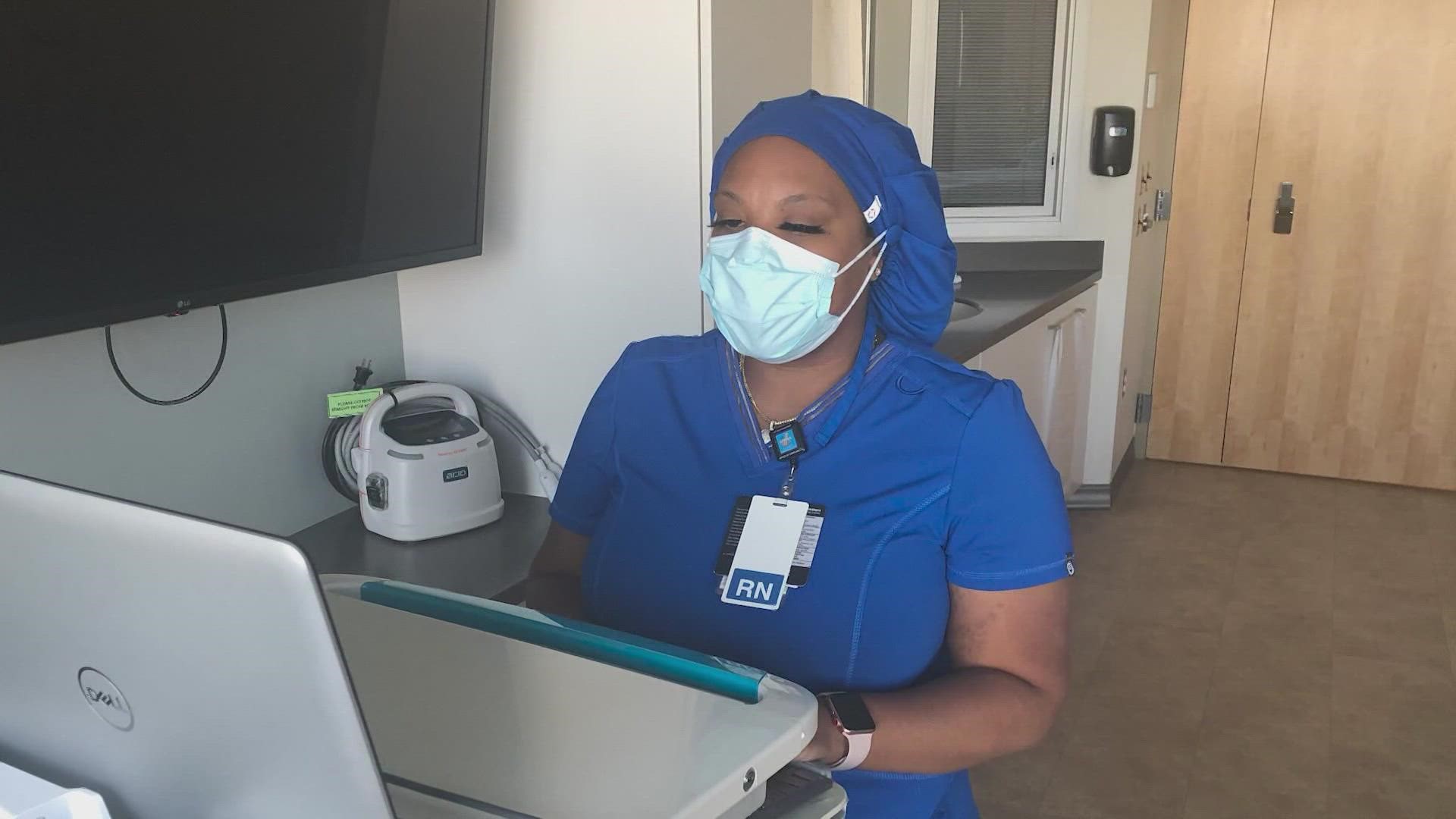TEXAS, USA — Sixteen dollars an hour - according to MIT that’s a livable wage for a single adult in Texas.
But Dan Hooper says you really need to be able to make $20 an hour to get out of poverty and he adds that requires at least a vocational certificate.
About half of Texas high school seniors pursue nothing after graduation.
Daybreak Anchor Kara Sewell sat down with a North Texas woman who spent years barely getting by but today, she’s making six figures just one year after earning a two-year college degree.
"I wanted to go to school, I wanted to be a nurse, I wanted to go to the next level," says Kamisha Mays.
Sitting outside Dallas College’s Mountainview Campus, Kamisha Mays recalls feeling trapped. The once college dropout forfeited her financial aid years earlier.
"You would have to pay so much money to come back to school. So, I knew I couldn’t do that with my income," says Mays.
As a CNA private duty tech, Mays already struggled to provide for her daughter.
By chance, her employer introduced her to Hooper, the founder of ScholarShot; the nonprofit that helps first-generation college students earn a degree. Mays applied and got accepted.
"It was a life-changing event. I was just pushing forward because I knew I wanted it really bad; this RN, I wanted it bad," says Mays.
ScholarShot advised Mays to take baby steps to give herself the confidence to handle the workload.
"I took myself for granted and I didn’t know I really had it in me to get into the books and really learn and retain everything and apply it until I started to see my grades. It’s not a race, you can start from the bottom and work your way up. I always tell them that an associate degree really opened the door from me," says Mays.
Mays earned her associate's degree and is a handful of classes away from a 4-year diploma.
"College is key, we don’t want our kids to live in poverty and we don’t want them to live check to check. Push them to go to school. Don’t push them to, let’s go get a job to help mom and dad out with bills, I know it’s hard out here but push them to go to school it can change their life," says Mays.
The Dallas Country Promise is another resource available to 57 participating high schools across eleven school districts.
"There are a lot of programs out here that will help students get in school and help them pay for school," says Mays.
"They don’t know, they just really don’t know that there’s help here to help with school, and they don’t know that school is something they can do. Some of them think that, 'oh you went to college?!' I’m not smart enough to go to college, everybody can train their brain to do whatever they want it to do," says Mays.
College can be a 1-, 2- or 4-year degree. But you don’t know what you don’t know; only one out of five kids from Dallas Country are showing up in the Dallas County Promise. This is a program meant to give students money and show them how to succeed in school.

